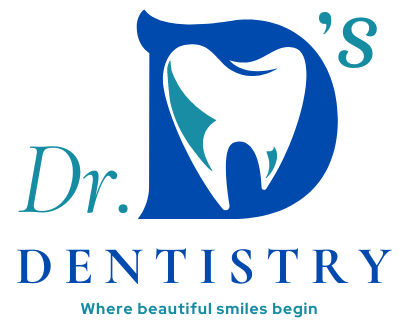Pregnancy is an exciting and life-changing time, but it can also bring unexpected challenges for your oral health. Hormonal changes, morning sickness, and shifts in your diet can all have an impact on your teeth and gums. Understanding how pregnancy affects your mouth and taking the right steps to protect your oral health will help you maintain a healthy smile during this special time.
How Pregnancy Affects Your Oral Health
Pregnancy triggers a variety of changes in your body, and your oral health is no exception. The most common dental issues experienced during pregnancy include:
- Morning Sickness and Enamel Erosion
- For many women, morning sickness is a frequent part of early pregnancy. Unfortunately, the acid from vomiting can wear away tooth enamel, making your teeth more susceptible to decay. If you experience frequent vomiting, your enamel may be weakened, leading to sensitivity or cavities over time.
- Gingivitis and Hormonal Changes
- During pregnancy, increased levels of hormones such as estrogen and progesterone make your gums more sensitive to plaque. This sensitivity can result in pregnancy gingivitis, a condition marked by red, swollen, and bleeding gums. If left untreated, gingivitis can progress to more severe gum disease, which may increase the risk of preterm birth and other pregnancy complications.
- Increased Risk of Cavities
- Pregnancy cravings, particularly for sugary snacks, can lead to more frequent snacking and an increased risk of cavities. Additionally, if morning sickness leads to brushing less often due to nausea, plaque buildup can contribute to tooth decay.
- Pregnancy Tumors
- Some women develop pregnancy tumors on their gums—non-cancerous growths that appear as small, swollen lumps. These growths are typically related to an increase in plaque and usually disappear after the baby is born.
How to Protect Your Teeth During Pregnancy
Taking proactive steps to care for your oral health can prevent many of the dental problems associated with pregnancy. Here are some essential tips to protect your teeth and gums:
- Brush and Floss Regularly
- Brush your teeth twice a day with fluoride toothpaste and floss daily to remove plaque and food particles. Make sure to use a soft-bristled toothbrush to avoid irritating sensitive gums.
- Rinse Your Mouth After Morning Sickness
- If morning sickness leads to vomiting, avoid brushing your teeth immediately afterward, as the acids from your stomach can soften enamel. Instead, rinse your mouth with water or a mixture of water and baking soda to neutralize the acid. Wait at least 30 minutes before brushing to prevent enamel damage.
- Stay Hydrated
- Drinking water throughout the day not only helps keep you hydrated but also rinses away food particles and neutralizes acids that can lead to cavities. If dry mouth is a problem during pregnancy, chewing sugar-free gum can help stimulate saliva production.
- Eat a Balanced Diet
- Your baby needs nutrients like calcium, vitamin D, and phosphorus for healthy development, and so do your teeth! A diet rich in fruits, vegetables, dairy, and lean proteins will help maintain strong teeth and gums. Limit sugary snacks, which can increase the risk of cavities.
- Visit Your Dentist Regularly
- Schedule a dental check-up early in your pregnancy. Inform your dentist that you’re pregnant so they can adjust treatments as needed and keep an eye on any changes to your gums or teeth. Routine cleanings are safe during pregnancy and can help prevent plaque buildup.
- Be Mindful of Oral Health Symptoms
- Pay attention to any signs of gum disease, such as bleeding, swelling, or tenderness in the gums. If you notice these symptoms, consult your dentist to prevent further complications.
Dental Myths During Pregnancy
There are several myths about dental care during pregnancy that can cause confusion. Let’s debunk a few of the most common ones:
- Myth 1: You should avoid dental visits during pregnancy.
- Fact: Regular dental check-ups are safe and important during pregnancy. Preventive care like cleanings can help manage any pregnancy-related oral health issues.
- Myth 2: Your teeth lose calcium during pregnancy.
- Fact: Your body does not pull calcium from your teeth to support your baby’s growth. However, maintaining a balanced diet with sufficient calcium intake is essential for your overall bone and dental health.
- Myth 3: You should stop brushing if your gums bleed.
- Fact: Bleeding gums are often a sign of gingivitis. Continuing with regular brushing and flossing, along with a dental check-up, can help reduce inflammation and improve gum health.
Post-Pregnancy Oral Health Care
After your baby is born, it’s important to continue prioritizing your oral health. Hormonal changes may still affect your gums, and new mothers often experience fatigue, which can make it challenging to stick to an oral hygiene routine. Here are some tips for post-pregnancy oral care:
- Stick to Your Oral Hygiene Routine
- Even with a busy schedule, find time to brush and floss daily. This will help prevent plaque buildup and reduce the risk of gum disease.
- Schedule a Postpartum Dental Visit
- If you experienced any oral health issues during pregnancy, such as gingivitis or pregnancy tumors, visit your dentist after delivery to address these concerns and ensure your mouth is healthy.
- Monitor Your Gums
- Keep an eye on your gum health after giving birth. If your gums remain swollen or continue to bleed, schedule a dental check-up to prevent complications.
Conclusion
Pregnancy is a beautiful and transformative journey, but it can also affect your oral health in unexpected ways. From morning sickness to gingivitis, taking steps to protect your teeth and gums is crucial for your well-being and your baby’s health. By maintaining good oral hygiene, eating a balanced diet, and visiting your dentist regularly, you can ensure a healthy, happy smile throughout your pregnancy and beyond.



